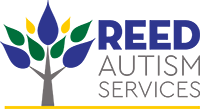Autism Resources
What is severe challenging behavior?
Prevalence estimates indicate that approximately 94% of individuals with autism engage in some form of challenging behavior.2,3
Challenging behavior, also referred to as problem, inappropriate, or aberrant behavior, is any behavior that presents a risk of harm to self or others. These behaviors may also interfere with an individual’s ability to engage in learning, access community resources, or even establish social relationships.1
There are many forms of challenging behavior, but some of the most common include: self-injurious behavior, aggression, property destruction, pica, stereotypy, and elopement. While the intensity of these behaviors can vary, severe challenging behavior often results in injury to self or others and requires a greater level of support (e.g., 1:1 staffing, intensive behavior services). It is important to note that the frequency, intensity, or form of a behavior does not always correspond to the level of severity. One headbang can produce a serious injury requiring hospitalization, multiple instances of pinching others can produce bruising and wounds, and restrictive-repetitive behaviors like arranging and ordering objects may significantly interfere with academic instruction.
An entire family can be impacted in multiple ways. In addition to the physical risks resulting from the severe challenging behavior; parents may find themselves significantly altering their daily routines to prevent the behavior from occurring. It is critical to address severe challenging behavior is as early as possible. If parents suspect their child engages in severe challenging behavior, they should seek consultation from a Board-Certified Behavior Analyst (BCBA®) with expertise in the assessment and treatment of severe challenging behavior.
Dr. David Wilson is a doctoral-level Board Certified Behavior Analyst with over 25 years of experience in the assessment and treatment of severe challenging behavior.
Resources:
- Autism New Jersey – Public Policy Priority: Severe Challenging Behavior
- Behavior Analyst Certification Board
Western Michigan University, Autism Center of Excellence:
- Dr. Brian Iwata on Functional Analysis of Problem Behavior
- Dr. Brian Iwata on Assessment and Treatment of Self-Injury
References:
- Eli T. Newcomb & Louis P. Hagopian(2018) Treatment of severe problem behaviour in children with autism spectrum disorder and intellectual disabilities, International Review of Psychiatry, 30:1, 96-109, DOI: 1080/09540261.2018.1435513
- Jang, J., Dixon, D. R., Tarbox, J., & Granpeesheh, D. (2011). Symptom severity and challenging behavior in children with ASD.Research in Autism Spectrum Disorders, 5(3), 1028-1032. doi:http://dx.doi.org/10.1016/j.rasd.2010.11.008
- Matson, J. L., Wilkins, J., & Macken, J. (2009a). The relationship of challenging behaviors to severity and symptoms of autism spectrum disorders. Journal of Mental Health Research in Intellectual Disabilities, 2, 29-44. 1080/19315860802611415
What is severe challenging behavior?
Prevalence estimates indicate that approximately 94% of individuals with autism engage in some form of challenging behavior.2,3
Challenging behavior, also referred to as problem, inappropriate, or aberrant behavior, is any behavior that presents a risk of harm to self or others. These behaviors may also interfere with an individual’s ability to engage in learning, access community resources, or even establish social relationships.1
There are many forms of challenging behavior, but some of the most common include: self-injurious behavior, aggression, property destruction, pica, stereotypy, and elopement. While the intensity of these behaviors can vary, severe challenging behavior often results in injury to self or others and requires a greater level of support (e.g., 1:1 staffing, intensive behavior services). It is important to note that the frequency, intensity, or form of a behavior does not always correspond to the level of severity. One headbang can produce a serious injury requiring hospitalization, multiple instances of pinching others can produce bruising and wounds, and restrictive-repetitive behaviors like arranging and ordering objects may significantly interfere with academic instruction.
An entire family can be impacted in multiple ways. In addition to the physical risks resulting from the severe challenging behavior; parents may find themselves significantly altering their daily routines to prevent the behavior from occurring. It is critical to address severe challenging behavior is as early as possible. If parents suspect their child engages in severe challenging behavior, they should seek consultation from a Board-Certified Behavior Analyst (BCBA®) with expertise in the assessment and treatment of severe challenging behavior.
Dr. David Wilson is a doctoral-level Board Certified Behavior Analyst with over 25 years of experience in the assessment and treatment of severe challenging behavior.
Resources:
- Autism New Jersey – Public Policy Priority: Severe Challenging Behavior
- Behavior Analyst Certification Board
Western Michigan University, Autism Center of Excellence:
- Dr. Brian Iwata on Functional Analysis of Problem Behavior
- Dr. Brian Iwata on Assessment and Treatment of Self-Injury
References:
- Eli T. Newcomb & Louis P. Hagopian(2018) Treatment of severe problem behaviour in children with autism spectrum disorder and intellectual disabilities, International Review of Psychiatry, 30:1, 96-109, DOI: 1080/09540261.2018.1435513
- Jang, J., Dixon, D. R., Tarbox, J., & Granpeesheh, D. (2011). Symptom severity and challenging behavior in children with ASD.Research in Autism Spectrum Disorders, 5(3), 1028-1032. doi:http://dx.doi.org/10.1016/j.rasd.2010.11.008
- Matson, J. L., Wilkins, J., & Macken, J. (2009a). The relationship of challenging behaviors to severity and symptoms of autism spectrum disorders. Journal of Mental Health Research in Intellectual Disabilities, 2, 29-44. 1080/19315860802611415

